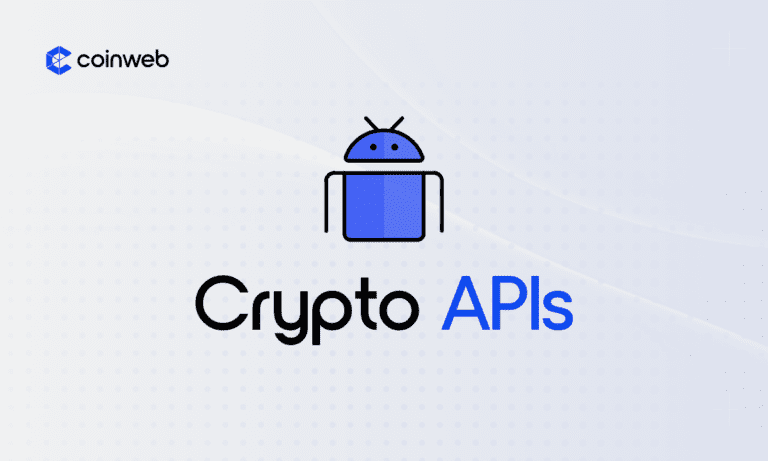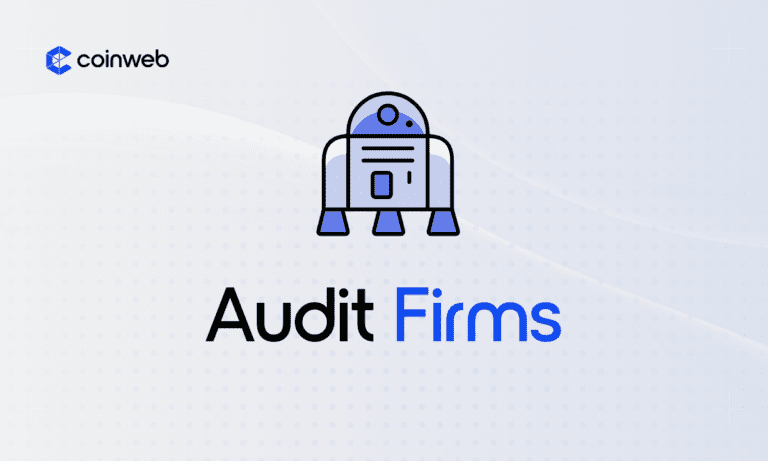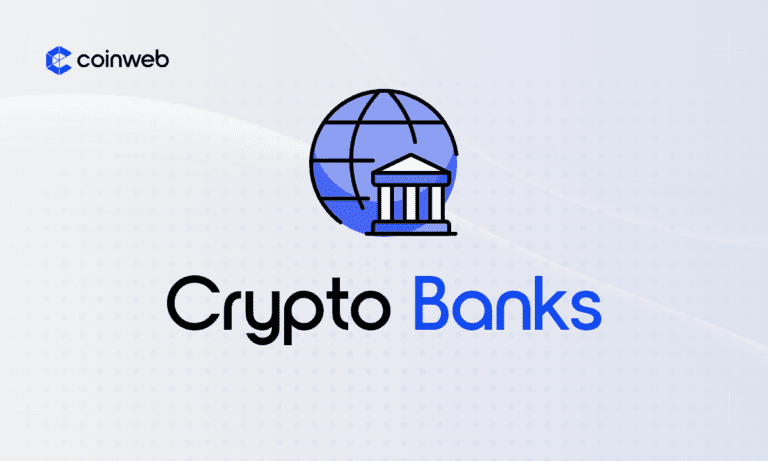TLDR
This comparison lists the best crypto API available in the industry. It explores the use and different types of crypto APIs in blockchain and highlights their advantages.
Crypto APIs have become essential for dApp development, offering the needed tools and resources. These enhance the development of decentralized applications by ensuring seamless communication with blockchains and maximizing overall functionality.
These APIs give access to blockchain data, allowing transaction execution, information storage, and smart contract deployment. With crypto APIs, developers can effectively test and enhance your blockchain applications. Using APIs, they can access consensus algorithms and simulate various network scenarios.
Introduction
Even though the blockchain’s infrastructure development was initially sluggish, the remarkable bull run in 2017 triggered a new era of crypto products.
Now, the crypto space is undergoing an unprecedented surge in development. That’s why it attracts developers from diverse domains enticed by the prospect of a crypto gold rush.
If you are eager to embark on your crypto application journey, specially crafted APIs are available to facilitate your path.
Additionally, APIs can streamline and support your crypto startups of products. So, whether you want to create personal trading bots, a complete crypto exchange, or a payment processing application, APIs make the job easy.
What is a Blockchain API?
Blockchain APIs act as a bridge between developers and the blockchain. It provides a simplified way to interact with the innovative technology.
Crypto APIs simplify blockchain development by abstracting its complexities. With this ease, it is more manageable for developers to integrate blockchain technology into their dApps.
Thanks to crypto APIs, the developers can now focus more on their app’s practicality. Now, they don’t need to get bogged down in the complexities of blockchain protocols.
This streamlined approach accelerates development. Also, it empowers developers to create innovative and secure blockchain-based applications more efficiently.

Why are APIs important for blockchain developers?
Crypto APIs play a vital role in development, particularly in blockchain technology. They equip programmers with the tools and resources to build decentralized applications (DApps) that communicate with blockchain networks.
By granting crypto data and functionality access, APIs empower developers to create applications capable of executing transactions. Using crypto assets and data, storing information, or deploying smart contracts makes a developer’s life easier.
In addition, APIs let developers test and optimize their blockchain applications. For example, they can access consensus algorithms used by blockchain to understand the network consensus on transactions and blocks.
By simulating different network situations, developers can evaluate the performance of their applications with various consensus techniques. They can identify and resolve potential issues before releasing their applications on the blockchain network.
In a nutshell, APIs are crucial tools that facilitate development in the crypto space. They enable developers to interact with blockchain networks and build DApps. Moreover, they assist them in ensuring the efficiency of their applications before deployment.

How do these crypto APIs work?
Crypto APIs are crucial in facilitating interaction between developers and blockchain networks. Let’s explore the step-by-step process of how crypto APIs work:
Choosing a network and Identifying the endpoint
Developers must select the specific blockchain network they wish to connect with, such as Bitcoin, Hyperledger, or Ethereum.
An API endpoint allows developers to communicate with the chosen blockchain network. They must determine which API endpoint to use, such as Infura or Alchemy for Ethereum, to access the desired functions and services.
Authenticating API access
Developers must provide the credentials or tokens to ensure secure and authorized access. It is essential to authenticate their connection with the API endpoint.
Sending API requests
Once authentication is successful, developers can utilize the API endpoint to send requests to the blockchain network. These requests can involve sending data collection, transactions, using data scientists to retrieve information, and interacting with stable networks.
Receiving API responses
The blockchain network responds to API calls and requests by providing relevant data or confirming actions. For example, developers may receive information about wallet balances or the state of smart contracts.
Analyzing and utilizing API data
After receiving API calls and responses, developers can analyze and utilize the data as needed. This could involve using historical data and modifying the state of a smart contract in a decentralized application (DApp). Also, leveraging the received data for further processing and decision-making.

Types of Crypto APIs
Within the blockchain ecosystem, various types of APIs serve specific purposes. To understand its functions and applications, let’s dive into each type in detail.
Node API
A node cryptocurrency is one API key that assists developers in connecting with a specific node within a blockchain network. It is a gateway, allowing them to submit transactions and retrieve crucial data from the node, like transaction details and blocks.
Node APIs are especially helpful when building decentralized applications and verifying communication with the blockchain network.
Using node APIs, developers can participate in the blockchain ecosystem. They ensure a smooth and efficient interaction with the underlying blockchain infrastructure.
Pros
- Facilitates the creation of decentralized applications.
- Seamless communication with the blockchain network.
Cons
- Limited to a specific node, scalability challenges.
- Requires understanding of node operations.

Smart contract API
A smart contract API allows developers to interact effectively with cryptocurrency data and leverage smart contracts on a blockchain network.
Smart contracts are self-executing agreements incorporating predefined terms and conditions in code. These contracts are essential in ensuring trust and transparency in business crypto transactions.
A smart contract API makes it easy to programmatically develop, deploy, and execute these contracts. Furthermore, these interfaces help open many avenues for innovative decentralized applications (DApps).
In particular, smart contract APIs have gained significant traction in developing decentralized finance (DeFi) applications.
Pros
- Automation and efficiency.
- Transparency and immutability.
- Enhanced trust among parties.
Cons
- Technical complexity and expertise are required.
- Potential security vulnerabilities.
- Variations in legal enforceability.

Wallet API
A wallet API is a powerful tool that empowers developers to control Bitcoin transactions by providing access to a blockchain wallet.
With a wallet API, you can incorporate functionalities within your applications. It allows users to monitor their crypto wallets and transaction history and securely transmit and receive crypto assets.
In addition, this API is perfect for dApps that use cryptocurrency payments, like e-commerce and gaming platforms. It offers seamless integration of wallet functionalities into the overall user experience.
In short, a wallet API allows you to ensure a smooth flow of cryptocurrency exchange transactions within their applications.
Pros
- Provides control over Bitcoin transactions through a blockchain wallet.
- Easy monitoring of crypto exchange, transmission, and receipt of cryptocurrencies.
- Facilitates integration of cryptocurrency payments into applications.
Cons
- Requires careful security implementation.
- Integration complexity may vary across blockchain networks.
- Reliance on external APIs introduces dependencies and potential failures.

Market data API
A market data and trading API is a valuable resource that provides real-time market information for digital assets. Besides that, it offers access to critical historical market data parameters, including trade volumes and portfolio valuation tools.
Additionally, this API is essential in developing dApps that need up-to-date market data for informed decision-making.
For example, crypto trading platforms depend on market data APIs to display real-time prices on crypto exchanges. Not only does it evaluate crypto market trends, but it also shows historical data and facilitates trading activities.
Hence, by integrating a market data API into your mobile apps, you can ensure that users can access accurate market information. Plus, developers can enhance the overall user experience on their apps or exchanges.
Pros
- Offers real-time market data for cryptocurrencies.
- Enables the creation of applications requiring up-to-date market information.
- It helps make informed decisions based on trade volumes in crypto markets.
Cons
- Dependence on external market data sources.
- Requires efficient processing and storage for large volumes of real-time data.
- Regular maintenance is needed to stay compatible with evolving data sources.

Identity API
An identity API key is a fundamental component of a blockchain network. It offers a robust mechanism to confirm and manage users’ identities on exchanges, wallets, or dApps.
Developers can facilitate secure user authentication and verification processes. They can do this by incorporating an identity API into their blockchain applications.
Interestingly, this API technology enables the creation and management of digital identities within the blockchain network. That is critical in ensuring only authorized users can access and interact with the application.
An identity API can greatly benefit user authentication applications like voting systems or platforms with restricted access.
Pros
- A secure mechanism for confirming and managing user identities.
- Facilitates user authentication and verification processes.
- Supports applications requiring trusted digital identities.
Cons
- Implementation complexity and additional development effort.
- Privacy and data protection measures are required.
- Requires careful planning and coordination with existing systems.

Pros of using Crypto APIs
The advantages of using crypto APIs are manifold. Let us discuss these in a little more detail.
Simplifying Blockchain Development
Using crypto APIs can significantly benefit developers and businesses leveraging blockchain technology. A key advantage is their simplicity in blockchain development, making it hassle-free for developers to create blockchain applications.
In addition, APIs abstract the complex layers of blockchain technology. More importantly, they offer a user-friendly approach to interacting with the blockchain.
Access to valuable Blockchain data
Crypto APIs provide users access to a wealth of cryptocurrency data stored on the blockchain. You can use it to develop new business ideas, automate processes, and enable trustless transactions on crypto exchanges.
You can monitor and check live crypto prices or trading volume from cryptocurrency exchange providers and providers. Not to forget, businesses are free to use the data for valuable insights into their operations for data-driven decision-making.
Enhanced Security and Integrity
Another advantage of utilizing blockchain APIs is ensuring the integrity and security of applications. The transparency and immutability of the blockchain allow the development of robust systems resistant to cyberattacks and hacks.
Besides that, these APIs enable companies and developers to build secure solutions that instill trust among users and protect against malicious activities.
Staying up-to-date with industry trends
Blockchain APIs are vital in keeping developers informed about the latest trends and innovations in the blockchain space.
Plus, the API providers ensure access to the most recent research, best practices, and updates. It helps Web 3 startups to stay ahead of the curve and maintain their competitive edge.

Drawbacks of using Blockchain APIs
Implementing blockchain APIs can bring numerous advantages. But it’s essential to be aware of the challenges of their implementation. Let’s explore some critical difficulties developers and businesses may encounter.
The complexity of Blockchain technology
Blockchain technology can be intricate and challenging for developers to grasp and work with. Understanding blockchain networks’ underlying mechanisms requires time and effort. It can potentially lead to longer development cycles and higher costs.
Lack of standardization
Different blockchain networks and application programming interfaces (APIs) often need more standardized protocols.
Besides, crypto companies may need to familiarize themselves with multiple APIs to build blockchain-based applications. Also, the lack of standardization can introduce complexities and additional learning curves during development.
Infrastructure Requirements
Successful operation of blockchain APIs relies on a robust infrastructure, including secure databases, the internet, and servers. That’s why building and maintaining such infrastructure can add costs and technical challenges in implementing blockchain APIs.
Regulatory environment
The regulatory landscape surrounding blockchain technology varies significantly across nations and regions. This regulatory diversity can create ambiguity and legal complexities. Therefore, it can potentially hinder the widespread adoption of blockchain applications.
Developers and startups must navigate these regulatory hurdles and ensure compliance with applicable laws.
Data Security and Privacy
While using blockchain APIs, data security and privacy are critical concerns. Blockchain technology’s transparent and decentralized nature raises the risk of exposing it to scams or compromising sensitive data.
Developers must implement robust security measures for data’s safe transmission and storage and restrict access to authorized parties only.

Factors to consider when choosing an API
Picking a suitable blockchain API is a crucial decision that can significantly impact the success of your project. Let’s dive deeper into each consideration to ensure you make an informed choice:
Blockchain platform compatibility
Ensure that the API you select is designed explicitly for the blockchain platform you are working with. Different blockchain networks have unique features and protocols. So, choosing an API that aligns with your chosen platform is essential.
For example, if you are working on Ethereum, look for an API that ensures smooth integration with Ethereum’s smart contracts and dApps.
Data retrieval capabilities
Consider the data types the API can retrieve and how to access it. Depending on your project requirements, you may need to retrieve transaction data, block information, or interact with smart contracts.
Ensure the API provides easy access to your historical data in a format compatible with your application’s requirements.
Security measures
Security should be a top priority when choosing a blockchain API. Look for an API that implements robust encryption protocols to safeguard sensitive data.
Additionally, an API should provide secure access methods, like authentication mechanisms, to protect against unauthorized access.
Normally, a reputable API provider will also have measures to mitigate common online risks, like DDoS attacks.

Scalability
Scalability is an important consideration, especially if you anticipate your project growing in terms of users or data volume.
Evaluate the API’s capacity to handle many more requests, response speed, and ability to handle extensive data.
Choosing a scalable API will ensure your application can handle increased traffic and growing demands without compromising performance.

Support and documentation
Access to comprehensive developer support and documentation can significantly facilitate your integration process. Look for an API provider with detailed documentation, including tutorials, code samples, and FAQs.
Additionally, consider whether the provider has an active developer community to seek assistance from other developers. This support ecosystem can be invaluable in troubleshooting issues and maximizing the potential of the API.

Pricing structure
Estimate the API’s pricing and ensure it aligns with your project’s budget. Some APIs offer fixed plans or transaction-based pricing, while others may have free tiers or usage-based models.
Consider the costs associated with your expected usage and weigh them against the features and benefits provided by the API. It’s crucial to balance affordability and the API’s value to your project.

Conclusion
Crypto APIs provide developers with flexible and powerful tools to build cryptocurrency projects. The wallet, market data, and identity APIs discussed above are highly regarded in the industry.
Ultimately, the choice of APIs depends on your specific project needs, so we recommended creating a checklist to select the most suitable API. This checklist should consider factors like required functions, budget constraints, additional features, and the frequency of data updates.
By evaluating these factors and tailoring the checklist to your project requirements, you can decide the best crypto API for your venture.
The availability and cost of crypto APIs vary depending on the provider. Some offer free tiers with limited functionality, while others have paid plans.
The best API for crypto depends on your requirements and the blockchain platform you work with. Popular options include Algorand API, Binance API, Nownodes API, Coinmarketcap API, Simpleswap API, Coincap API, KuCoin API, CoinLayer API, and Coinbase API.
Choose a blockchain platform and research compatible API providers to create an API for your digital assets. Plus, follow the API's documentation to set up the integration.
The cost of cryptocurrency APIs depends on the provider and their pricing structure. Some APIs have a free version that offers scalable endpoints, while some require a paid subscription or charge based on usage.
Yes, some API providers offer free tiers or limited-access plans. However, availability and features may vary. It's crucial to review provider offerings and pricing structures.














